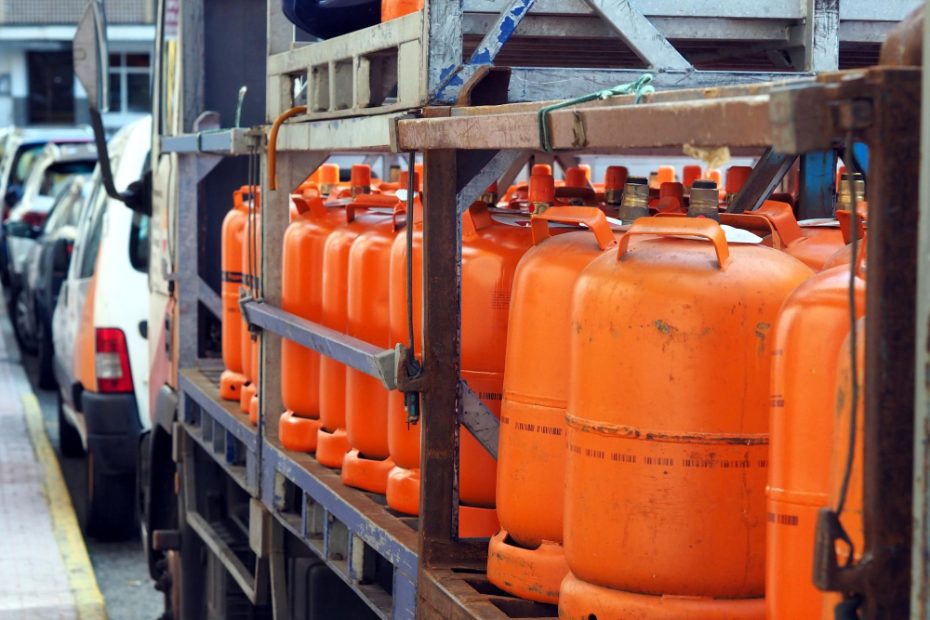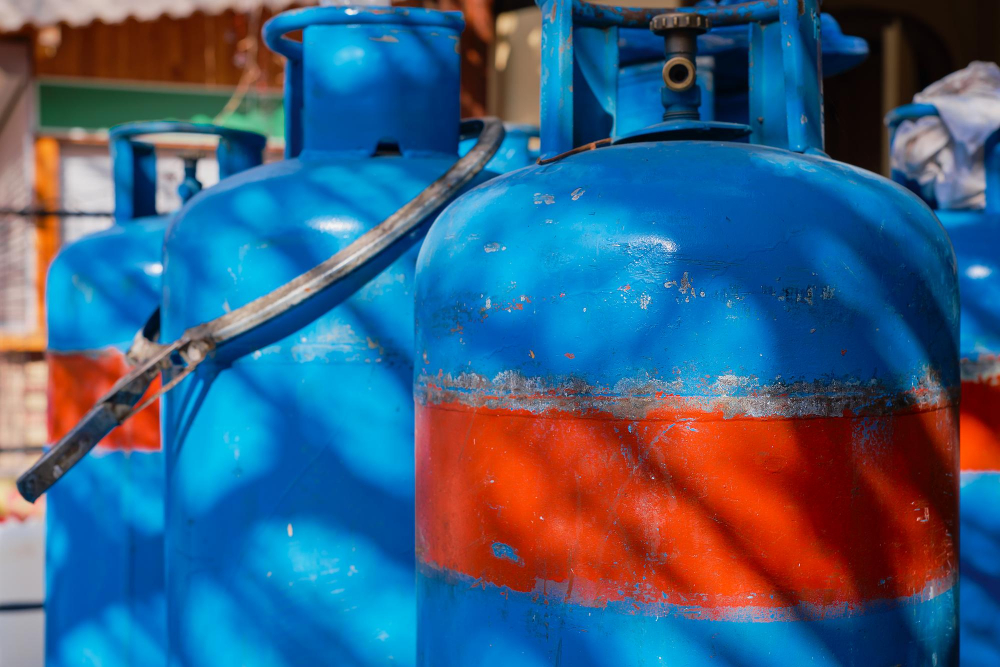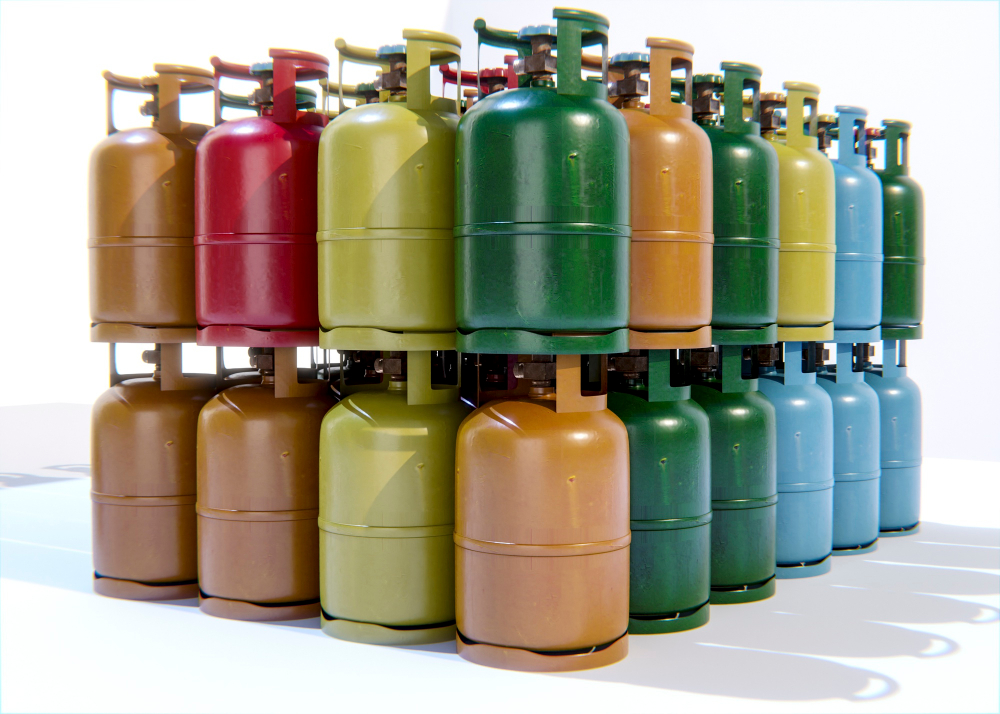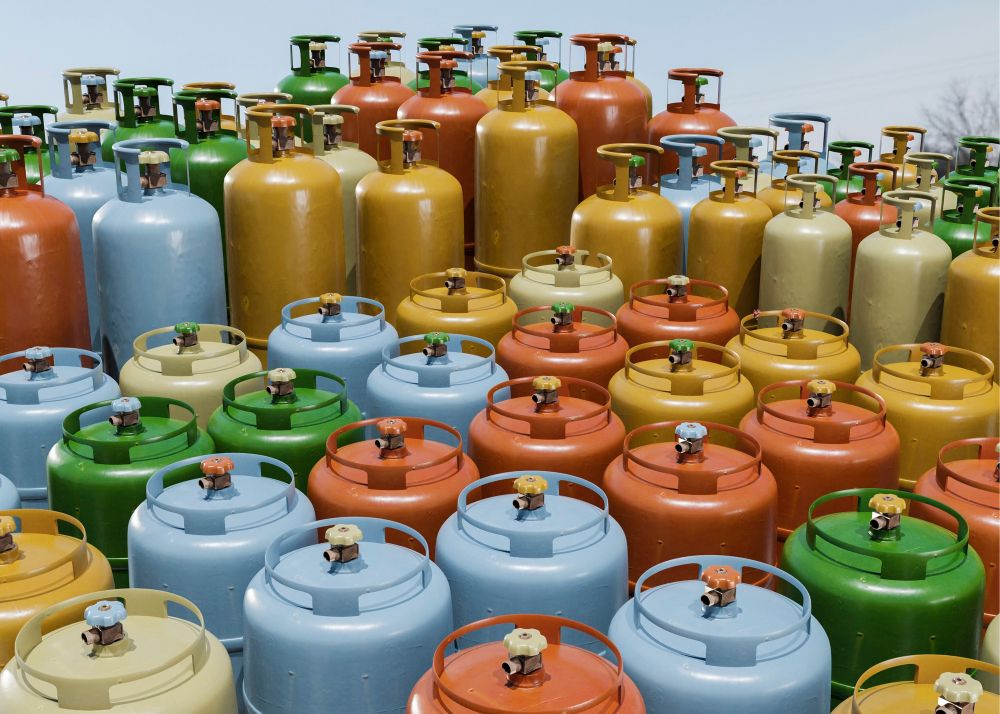Is propane gas the same as BBQ gas?
When it comes to firing up the grill for a delicious barbecue, many of us reach for a propane tank to fuel our outdoor cooking adventures. But is propane gas the same as BBQ gas? The answer is both yes and no, and it largely depends on where you are in the world.
The Differences Between Propane Gas and BBQ Gas
In the UK, propane gas is commonly used for barbecues, and it’s often sold as “BBQ gas.” However, it’s important to understand that the term “BBQ gas” is not universally used to refer to the same thing worldwide. In some countries, such as the United States, BBQ gas typically refers to a different type of fuel altogether.
In the UK, BBQ gas is essentially propane gas that is specifically designed for use in barbecues and outdoor grills. It’s available in portable cylinders that are convenient for backyard cookouts and picnics in the park. These cylinders are filled with propane, which is a clean-burning gas that provides efficient and consistent heat for cooking.
Fun Fact: Propane is derived from petroleum and natural gas, and it is a popular choice for grilling due to its high heat output and ease of use.
Propane Gas Availability
One of the advantages of using propane gas for barbecues in the UK is its widespread availability. BBQ gas cylinders can be found at many local hardware stores, supermarkets, and specialty outdoor cooking retailers. They are also readily available for refill or exchange at various locations throughout the country.
Furthermore, there are different sizes of BBQ gas cylinders to suit individual needs. Whether you’re hosting a small gathering in your garden or planning an epic summer barbecue party, you can choose a size that fits your specific requirements.
Benefits of Using BBQ Gas
Using BBQ gas offers several advantages for outdoor cooking enthusiasts. Here are a few reasons why many people prefer propane gas for their barbecues:
- Convenience: Propane gas cylinders are portable and easy to transport, making them perfect for picnics, camping trips, and tailgating.
- Quick Start: Propane gas grills ignite instantly, allowing you to start cooking almost immediately without waiting for the grill to heat up.
- Even Heat Distribution: Propane burners provide consistent heat distribution across the grill surface, ensuring your food is cooked evenly.
- Control: Propane grills allow for precise temperature control, allowing you to adjust the heat according to your cooking preferences.
Conclusion
While the terms “propane gas” and “BBQ gas” are sometimes used interchangeably in the UK, it’s essential to recognize that BBQ gas refers specifically to propane gas designed for outdoor cooking. Propane gas is a versatile and convenient fuel choice for barbecues, offering consistent heat, ease of use, and widespread availability. So, next time you fire up your grill, remember that you’re using propane gas, also known as BBQ gas, to create those mouthwatering grilled masterpieces!
Is Propane Gas the Same as Calor?
Propane gas is a popular fuel source for various applications, including heating and cooking. Many people often wonder if propane gas and Calor gas are the same thing. In short, the answer is no. Here’s an explanation of the key differences between propane gas and Calor.
Propane Gas
Propane gas is a type of liquefied petroleum gas (LPG) that is widely used in the UK. It has a high energy content, making it an efficient fuel choice. Propane is commonly used in homes for heating, cooking, and hot water systems. It is also widely used in commercial and industrial settings for processes such as welding and forklift operations.
Calor
Calor is a well-known brand that supplies LPG in the UK. They offer propane gas cylinders and bulk deliveries for various applications. While Calor gas is synonymous with propane in everyday usage, it is important to note that Calor is just one company that supplies propane gas. Other companies in the UK also provide this type of LPG.
“Calor gas is a brand of propane gas.”
If you are in the UK and need propane gas for your home or business, you have multiple suppliers to choose from, including Calor. However, it’s always a good idea to compare prices and services from different suppliers to ensure you are getting the best deal.
Here is a comparison table summarizing the key differences:
| Propane Gas | Calor | |
|---|---|---|
| Type of Gas | Propane | Propane |
| Supplier | Multiple companies | Calor (one of many) |
| Availability | Widely available | Available through Calor distributors |
| Use | Heating, cooking, commercial applications | Heating, cooking, various applications |
In conclusion, while propane gas and Calor gas are not the same thing, Calor is a well-known supplier of propane gas in the UK. It’s important to understand that there are multiple companies that provide propane gas, so it’s worth comparing different suppliers to find the best option for your needs.
Which is better: Propane or Butane?
Propane and butane are two commonly used liquefied petroleum gases (LPG) in the UK. Both fuels have their own unique properties, making them suitable for different applications. Understanding the differences between propane and butane can help you choose the right fuel for your specific needs.
Differences in Performance
When it comes to performance, there are a few key differences between propane and butane. Propane, with its lower boiling point, performs well even in colder temperatures. It is widely used for outdoor activities such as camping and BBQs due to its ability to maintain a consistent heat output. On the other hand, butane has a higher boiling point and may struggle to perform efficiently in colder weather conditions.
Availability and Cost
In the UK, both propane and butane are readily available and can be purchased from various suppliers. However, the cost of each fuel can vary. Propane tends to be slightly more expensive than butane, but its greater efficiency makes up for the difference in price. Additionally, propane cylinders often hold more gas, providing longer usage before needing a refill.
Safety Considerations
Both propane and butane are safe to use when handled properly. However, it is important to note that propane is heavier than air and may accumulate in low-lying areas if there is a leak. Butane, on the other hand, is lighter than air and tends to dissipate quickly in case of a leak. Always follow safety guidelines when handling LPG fuels and consider using carbon monoxide detectors if using them indoors or in poorly ventilated spaces.
Specific Applications
“Propane is ideal for heating, cooking, and powering appliances, while butane is commonly used for portable stoves and lighters.”
The choice between propane and butane depends on the intended application. Propane is ideal for heating, cooking, and powering appliances in homes and commercial settings. It is also commonly used in industrial processes. Butane, on the other hand, is commonly used for portable stoves, lighters, and camping equipment. Its lower vapor pressure makes it suitable for smaller, portable devices.
Which is Safer: Butane or Propane?
Butane and propane are commonly used as fuels for various purposes. Whether you’re using them for camping, heating, or cooking, safety should always be a top priority. Let’s explore the safety aspects of both butane and propane to determine which one is safer.
Properties and Physical Characteristics
Both butane and propane are flammable gases, but they have slightly different properties. Butane is denser than propane, which means that it can settle at ground level if released in an enclosed space. On the other hand, propane is lighter than air, so it tends to rise and disperse more quickly.
Storage and Handling
When it comes to storage and handling, both butane and propane require some precautions. Propane is usually stored in high-pressure cylinders, while butane is often found in low-pressure containers. It is crucial to store these fuels in well-ventilated areas away from ignition sources. Additionally, both fuels should be handled with care to prevent leaks and fires.
Safety Concerns
While butane and propane are considered safe if used properly, there are a few safety concerns to keep in mind. Butane has a lower ignition temperature, making it more susceptible to catching fire. Propane, on the other hand, has a higher energy content, which means that accidents involving propane can lead to more significant fires and explosions.
Please note:
Always follow the manufacturer’s guidelines and recommendations for the safe use of butane and propane. Perform regular maintenance checks on appliances and gas systems to ensure their safety.
Comparison of Safety Features
Here is a comparison table highlighting the safety features of both butane and propane:
| Butane | Propane | |
|---|---|---|
| Flammability | High | High |
| Density | Higher | Lower |
| Ignition Temperature | Lower | Higher |
| Energy Content | Lower | Higher |
| Storage Pressure | Lower | Higher |
In conclusion, both butane and propane have their own safety considerations. However, when used responsibly and following proper guidelines, the risks associated with either fuel can be minimized. Make sure to assess your specific needs and consider the properties and safety features of both fuels before making a decision.
- Always store and handle butane or propane in well-ventilated areas.
- Follow manufacturer’s guidelines and safety recommendations.
- Regularly inspect and maintain gas appliances and systems.
- Keep flammable gases away from ignition sources.
Which is Hotter: Propane or Butane?
The Basics
When it comes to outdoor cooking and heating, propane and butane are two common fuel choices. Both are hydrocarbon gases and are commonly used in camping stoves, portable heaters, and gas grills. Understanding which one is hotter can help you choose the right fuel for your needs.
Heat Output
Propane generally has a higher heat output compared to butane. This is due to its lower boiling point, which allows it to vaporize more readily, even at low temperatures. Propane can produce a maximum heat output of around 2,500 to 2,800 degrees Celsius (4,500 to 5,000 degrees Fahrenheit).
On the other hand, butane has a higher boiling point and requires more pressure to vaporize. As a result, it produces a lower heat output compared to propane. Butane typically reaches a maximum heat output of around 1,970 degrees Celsius (3,578 degrees Fahrenheit).
Applications
While propane is hotter, the choice between propane and butane depends on the specific application.
In colder climates or at higher altitudes, propane is often preferred as it performs better in low temperatures and requires less pressure to vaporize. It is also commonly used in industrial applications, such as welding and cutting metals.
Butane, on the other hand, is commonly used in portable camping stoves and indoor portable heaters. It is a popular choice for these applications due to its ease of use, affordability, and availability.
Safety Considerations
Both propane and butane are flammable gases, so safety precautions are essential when handling and storing them.
Propane is heavier than air, so any leaks can accumulate in low-lying areas, posing a greater risk of fire or explosion. Butane, being lighter than air, disperses more easily and poses a lower risk in case of leaks.
It is important to handle and store both fuels properly, ensuring adequate ventilation and following manufacturer guidelines.
“While propane is hotter, the choice between propane and butane depends on the specific application and environmental factors.”
Is UK LPG Propane or Butane?
When it comes to using liquefied petroleum gas (LPG) in the UK, you may have heard of both propane and butane. But which one is more commonly used in the country? Let’s take a closer look at the differences between the two.
Propane
In the UK, propane is the most widely used LPG for domestic and commercial purposes. It is known for its excellent performance in colder temperatures, making it ideal for outdoor activities such as camping and caravanning. Propane is also commonly used in heating systems, cooking appliances, and even for powering vehicles.
Key points about propane:
- High energy content per unit volume
- Lower boiling point compared to butane
- Good performance in cold weather conditions
Butane
While propane is more popular, butane is also used in certain applications in the UK. It is commonly found in portable gas canisters used for camping stoves and some indoor heaters. Butane has a higher boiling point compared to propane, which means it performs better in warmer weather conditions.
Key points about butane:
- Slightly lower energy content per unit volume compared to propane
- Higher boiling point compared to propane
- Ideal for warm weather conditions
It’s important to note that when purchasing LPG appliances or cylinders, you should always check the recommended type of gas specified by the manufacturer. Using the wrong type of gas can lead to inefficient performance or potential safety issues.
Here’s a quick comparison between propane and butane:
| Property | Propane | Butane |
|---|---|---|
| Energy Content | High | Lower than propane |
| Boiling Point | Lower than butane | High |
| Performance in Cold Weather | Good | Less efficient |
| Performance in Warm Weather | Less efficient | Ideal |
In summary, propane is the more commonly used LPG in the UK due to its versatility and better performance in colder temperatures. However, butane has its own applications and may be suitable for specific needs or warmer weather conditions. Always refer to the manufacturer’s recommendations to ensure the correct gas type is used for your appliances.
Conclusion
In summary, whether propane or butane is better depends on your specific requirements. If you need a fuel that performs well in colder temperatures and provides efficient heat output, propane is a good choice. On the other hand, if you require a portable fuel for camping or small devices, butane may be more suitable. Consider your intended use, availability, cost, and safety factors when deciding between propane and butane.
In summary, while both propane and butane are commonly used fuel choices, propane generally has a higher heat output. Propane is hotter than butane and is preferred for colder climates and industrial applications. However, butane is widely used in portable camping stoves and indoor heaters due to its ease of use and affordability. Safety considerations should always be taken into account when handling and storing either fuel.



